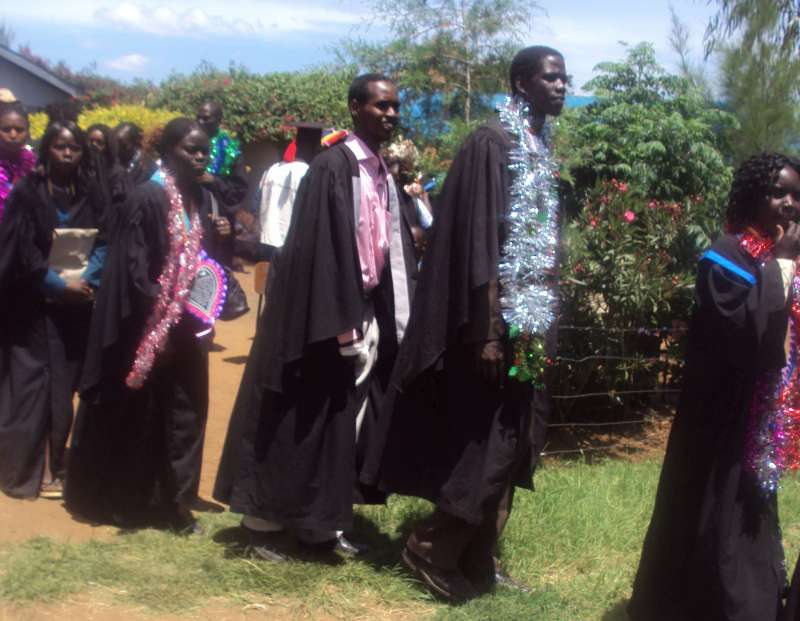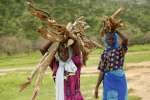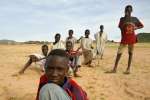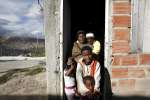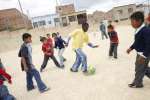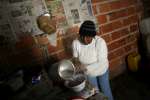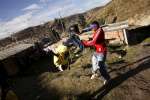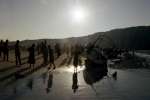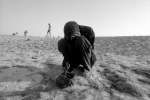- Text size
 |
|  |
|  |
| 
- Français
Somali DAFI graduates return to school to teach other refugees in Kenya
Making a Difference, 20 April 2010
NAIROBI, Kenya, April 20 (UNHCR) – Three Somali graduates of UNHCR's unique higher education scholarship programme went back to school this month to pass on their knowledge to a younger generation of refugees in Kenya.
Aden Yusef Mohamed, Ahmed Aden Hasan and Hish Mohamed Maow have spent the past two years studying at the Nakuru Teachers Training College thanks to grants provided under the Albert Einstein German Academic Refugee Initiative, or DAFI as it is more commonly known.
The progamme was launched in 1992 and is sponsored by the German government, which last month signed an agreement with UNHCR to continue their cooperation on DAFI.
The newly qualified teachers have started working at primary schools in the sprawling and crowded Dadaab refugee complex in north-east Kenya. The three camps at Dadaab are home to almost 300,000 mainly Somali refugees. Aden, Ahmed and Hish all completed their primary and secondary education in Dadaab.
Ahmed, aged 27, said studying in Nakuru had been an eye-opening and immensely rewarding experience after spending most of his life in Dadaab. "I had never seen a bank before and had to ask one of my fellow students to explain to me how to withdraw money," he revealed.
His colleague Hish, in his 20s, was equally enthusiastic about the experience. "Thanks to DAFI, we gained so many experiences and made many Kenyan friends," he told UNHCR at his graduation ceremony in Nakuru. This changed our ideas of what we can achieve in life."
Now these young men want to try and help other Somali refugees get the same opportunity as they did to study at tertiary level and establish a solid platform for a better future.
"Our education does not only help us, but also our community and the community hosting us. I found it very rewarding to be able to teach the next generation, and hence contribute to a better future for Somalis and Somalia," said Aden.
Having graduated from the teacher training college among the top 20 of the 500 students in their year group, all three young men hope to continue learning and studying to become secondary teachers in the near future.
An estimated 12,000 refugees have benefitted from DAFI scholarships since the programme was launched in 1992. They were awarded scholarships to study a wide range of subjects for terms ranging from one to four years at universities, colleges and polytechnics in their host countries.
More than 30 countries, including Kenya, are currently taking part. Around 100 refugees have completed courses in Kenya under DAFI scholarships and joined an important alumni association.
In 2008, the programme started offering scholarships in their countries of origin to refugees considering repatriation. The DAFI programme contributes to skills development, empowerment and academic achievement as part of a broader UNHCR strategy of promoting self-reliance and durable solutions for refugees.
By Andrea Koelbel in Nairobi, Kenya
